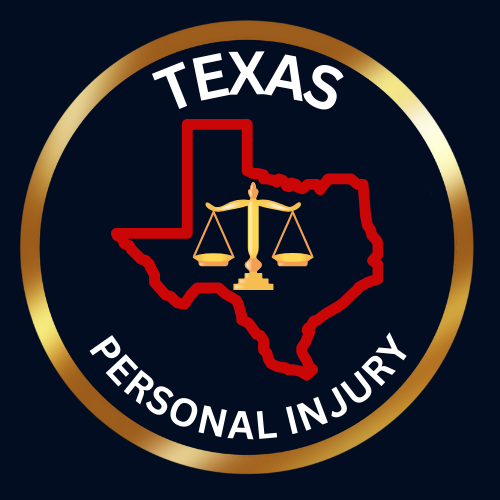Boating Accident Lawyer: Protecting Your Rights on the Water
Boating accidents can instantly turn a day of fun and relaxation into a nightmare. When you or a loved one has been injured in a boating accident in Texas, you may face a long road to recovery, mounting medical bills, and lost wages. During this challenging time, you need an experienced Texas boating accident lawyer who can fight for your rights and help you seek the compensation you deserve.
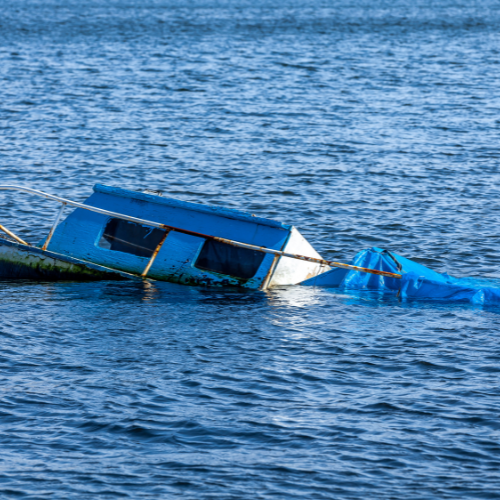
Texas is home to countless lakes, rivers, and coastal waters, making it a popular destination for boating enthusiasts. However, with the increased popularity of boating comes a higher risk of accidents. According to the Texas Parks and Wildlife Department, there were 209 boating accidents in Texas in 2020, resulting in 38 fatalities and 129 injuries.
Boating accidents are not typically classified as vehicle accidents like car accidents, truck accidents, or motorcycle accidents. Instead, they fall under maritime or admiralty law, which covers incidents on navigable waters. Boating accidents have their own set of regulations and legal considerations, separate from those governing land-based vehicle accidents. When a boating accident occurs, having an experienced boat accident lawyer on your side is essential. At Texas Personal Injury Trial Group, we have a deep understanding of maritime law and the complexities involved in boating accident cases. Our dedicated team of boat accident attorneys has the knowledge, skills, and resources to handle even the most complex boating accident cases. We understand the unique challenges of these cases and are committed to providing personalized attention and aggressive representation to each client.
Common Causes of Boating Accidents
Boating accidents can occur for various reasons, many of which are distinct from those causing other types of vehicle accidents. Common causes of boating accidents include:
Operator Inexperience and Inattention
Many boating accidents occur due to operator inexperience or inattention. Inexperienced boaters may not understand how to properly navigate or handle their vessel, while distracted operators may fail to notice potential hazards or other boats in the area.
Boating Under the Influence (BUI)
Just like driving under the influence, boating under the influence of alcohol or drugs is illegal and extremely dangerous. Impaired boaters have slower reaction times, impaired judgment, and a higher risk of causing accidents. Operating a boat under the influence of alcohol is a leading cause of boating accidents.
Mechanical Failures and Defective Equipment
Mechanical failures or defective equipment, such as malfunctioning engines, steering systems, or safety gear, can cause boating accidents.
Weather-Related Accidents
Adverse weather conditions, such as strong winds, high waves, or thunderstorms, can make boating more hazardous and increase the risk of accidents.
Excessive Speed
High speeds increase the risk of collisions and make it more difficult to avoid boating accidents.
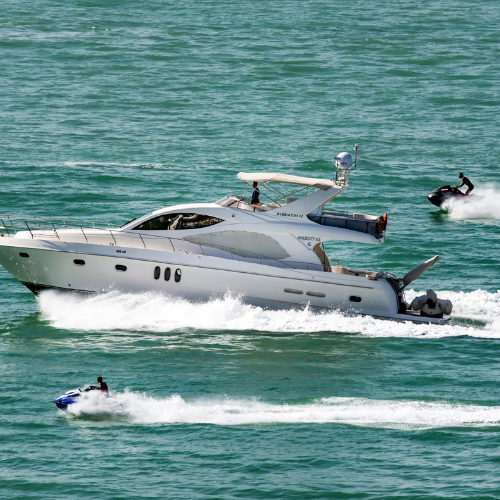
Understanding these causes is essential for building a strong case and identifying liable parties.
Types of Boating Accidents
Several types of boating accidents can result in serious injuries or fatalities, including:
Collisions with Other Vessels or Fixed Objects
Collisions between boats or between a boat and a fixed object, such as a dock or reef, can cause significant damage and injuries.
Grounding and Capsizing
Grounding occurs when a boat runs aground on a shallow or submerged object, and capsizing occurs when a boat overturns in the water. Both can lead to severe injuries or drowning.
Accidents Involving Water Skiers, Wake Boarders, or Tubers
Accidents involving water skiers, wake boarders, or tubers can occur when the boat operator is inattentive, faulty equipment, or the participant falls and is struck by the boat or another vessel, leading to potential drowning or other injuries..
Jet Ski Accidents
Jet skis, or personal watercraft, are involved in many boating accidents due to their high speeds and maneuverability. Collisions, ejections, and injuries are common in jet ski accidents.
Common Injuries in Boating Accidents
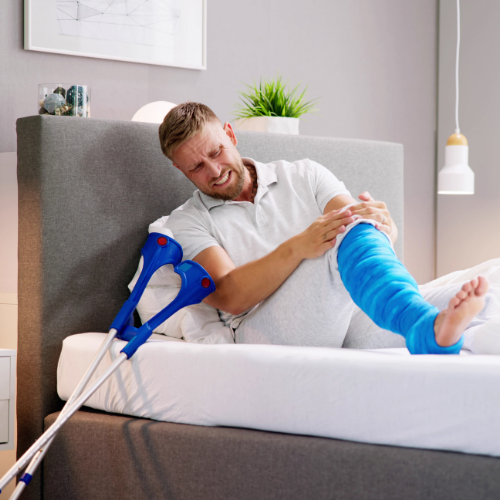
Boating accidents can result in a wide range of injuries, many of which can have long-term effects. Common injuries include:
- Drowning: One of the most severe consequences of boating accidents, drowning can occur if individuals are not rescued promptly.
- Hypothermia: Prolonged exposure to cold water can lead to hypothermia, which can be life-threatening if not treated immediately.
- Broken Bones: Fractures are common in boating accidents, particularly in high-impact collisions or falls.
- Head Injuries: Head injuries, including concussions or traumatic brain injuries (TBI), can result from blunt force trauma during an accident.
Documenting these injuries and seeking prompt medical treatment is crucial for both your health and your legal case.
Boating Laws and Regulations in Texas
To help prevent accidents and ensure the safety of all boaters, Texas has several laws and regulations in place:
Texas Water Safety Act
The Texas Water Safety Act outlines boat operation, registration, and safety equipment requirements. All boaters must follow these rules and regulations.
Required Boater Education and Safety Courses
Some boaters must complete a boater education course to operate certain vessels legally. These courses cover essential safety information and help new boaters develop the skills to navigate safely.
Life Jacket Requirements
Texas law requires that all boats have at least one U.S. Coast Guard-approved life jacket for each person on board. Children aged 13 or younger must always wear a life jacket on boats less than 26 feet long.
Reporting Boating Accidents
Boating accidents that result in injury, death, or property damage exceeding $2,000 must be reported to the Texas Parks and Wildlife Department within 30 days. Accidents involving fatalities must be reported within 48 hours.
Proving Negligence in a Boating Accident
To recover compensation in a boating accident claim, you must prove that another party’s negligence caused the accident and your resulting injuries. This involves establishing four key elements:
Establishing Duty of Care, Breach of Duty, Causation, and Damages
- Duty of Care: The other party owed you a duty to act reasonably and safely while operating their vessel.
- Breach of Duty: The other party breached this duty by acting negligently or recklessly.
- Causation: The other party’s breach of duty directly caused the accident and your injuries.
- Damages: You suffered actual damages, such as medical expenses, lost wages, or pain and suffering, as a result of the accident.
Gathering Evidence and Witness Statements
To prove negligence, our boating accident attorneys will help you gather evidence and witness statements to support your claim. This may include:
- Accident reports
- Photographs of the accident scene and damages
- Medical records and bills
- Witness testimony
- Expert opinions
Steps to Take After a Boating Accident
Taking the right steps immediately after a boating accident can significantly impact the outcome of your case. Here’s what you should do:
- Ensure Safety and Call Emergency Services: Move to a safe location if possible and call for emergency assistance to report the accident and request medical help.
- Collect Evidence at the Scene: Take photos of the accident scene, boat damage, and any visible injuries. Gather contact information from witnesses and other involved parties.
- Report the Accident to Relevant Authorities: Ensure the accident is reported to the appropriate authorities, such as the Coast Guard or local law enforcement.
- Seek Medical Attention: Even if you feel fine, it’s crucial to get a medical evaluation to document any injuries.
- Contact a Boating Accident Lawyer: Reach out to a lawyer to discuss your case and begin the legal process.
Damages in Boating Accident Claims
If you’ve been injured in a boating accident, you may be entitled to various forms of compensation, including:
- Medical Expenses: This covers both current and future medical bills related to your injuries, including hospital stays, surgeries, medications, and rehabilitation. If your injuries require ongoing treatment, you may also be entitled to compensation for future medical care.
- Lost Wages and Future Earning Capacity: If your injuries prevent you from working, you can claim compensation for lost income and any reduction in your future earning capacity.
- Pain and Suffering: In addition to economic damages, you can seek compensation for the physical pain, emotional distress, and mental anguish you’ve experienced as a result of the accident.
- Property Damage: You can seek reimbursement for the repair or replacement of your damaged boat and any other personal property affected by the accident.
- Punitive Damages: In cases of gross negligence, such as a boat operator operating under the influence of alcohol or drugs, you may be entitled to punitive damages aimed at punishing the wrongdoer and deterring similar conduct in the future.
Our goal is to ensure you receive the full compensation you are entitled to, helping you recover and move forward with your life.
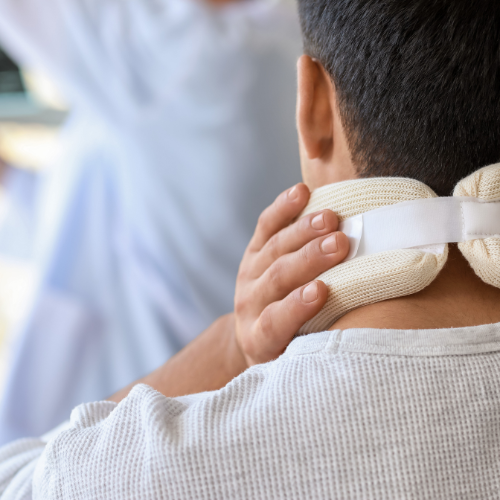
Why You Need a Boating Accident Lawyer
Boating accident cases involve unique complexities that require specialized legal expertise. Here are a few reasons why hiring a boating accident lawyer is essential:
- Complexity of Cases: Boating accidents often involve multiple legal and insurance issues, including maritime laws that differ from regular traffic laws. A lawyer with experience in this area can navigate these complexities effectively.
- Multiple Liable Parties: Determining liability in a boating accident can be challenging, as multiple parties may be responsible. These can include the boat operator, boat owner, manufacturer, or maintenance provider.
- Insurance Companies: Dealing with insurance companies can be difficult, especially when they attempt to minimize payouts. A boating accident lawyer can advocate for your rights and ensure you receive fair compensation.
How Our Texas Boating Accident Lawyers Can Help
At Texas Personal Injury Trial Group, our experienced boat accident lawyers are dedicated to helping you navigate the legal process and fight for the compensation you deserve.
Thorough Investigation of the Accident
We will thoroughly investigate your boating accident, gather evidence, interview witnesses, and consult experts to build a strong case on your behalf.
Identifying Liable Parties and Insurance Coverage
Our attorneys will identify all liable parties and explore all potential sources of insurance coverage to maximize your compensation.
Negotiating with Insurance Companies
We will handle all communications and negotiations with insurance companies, working tirelessly to secure a fair settlement that fully compensates you for your losses.
Filing a Lawsuit and Representing You in Court if Necessary
If a fair settlement cannot be reached, we are prepared to file a lawsuit and represent you in court, advocating for your rights and interests every step of the way.
Boating accidents can be devastating, but you don’t have to face the aftermath alone. With our experienced boating accident lawyers by your side, you can focus on your recovery while we handle the legal complexities of your case. Contact us today for a free consultation and take the first step toward securing the compensation you deserve.
Boating Accident Questions
What should I do if I’m involved in a boating accident in Texas?
- Seek medical attention for any injuries
- Report the accident to the Texas Parks and Wildlife Department
- Gather evidence, such as photos and witness contact information
- Contact an experienced Texas boating accident lawyer
How long do I have to file a boating accident lawsuit in Texas?
In most cases, you have two years from the accident date to file a personal injury lawsuit in Texas. However, consulting with an attorney as soon as possible is essential to protect your rights.
What if I was partly at fault for the boating accident?
Texas follows a modified comparative negligence rule, which means you can still recover compensation if you were partly at fault, as long as your percentage of fault is 50% or less. However, your compensation will be reduced by the percentage of your fault
What if a defective product caused the boating accident?
If a defective boat or equipment caused the accident, you might have a product liability claim against the manufacturer or distributor. Your attorney can help you determine the best course of action.
How much does hiring a Texas boating accident lawyer cost?
Texas Personal Injury Trial Group attorneys work on a contingency fee basis, meaning you pay no upfront costs or fees. We only get paid if we successfully recover compensation for you.
